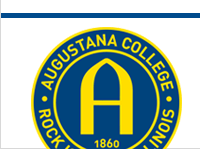Course
WGST-304 Feminist Theory
Document Type
Student Paper
Publication Date
2017
Disciplines
Christian Denominations and Sects | Christianity | Feminist, Gender, and Sexuality Studies | Gender and Sexuality | Other Feminist, Gender, and Sexuality Studies | Politics and Social Change | Practical Theology | Women's Studies
Description, Abstract, or Artist's Statement
Through a feminist lens, this essay will explore modern expressions of the conservative evangelical Christian purity movement, including Christian sex manuals, abstinence-only education programs, and purity balls. To begin, I will explain the most important facets of my own feminist theory, which draws from existentialist, socialist, and postmodern feminisms. Using this unique combination of theories, I will attempt to reconcile my deeply held Christian and feminist beliefs about sex. Finally, I will propose a solution that honors both of these important parts of my identity. I assert that the Christian purity movement Others women reinforcing a gender binary, bending to the will of capitalist power structures, and assuming unified human experience. As we strive to disrupt systems that Other women like capitalism and patriarchy, we must not Other the women whom we hope to help by assuming that we already know their experience. In order to truly love our neighbors, we Christians—and feminists—must deeply listen to the beliefs that shape their genuine convictions.
Augustana Digital Commons Citation
Griggs, Hannah K.. "Reproducing the Capitalist Patriarchy in the Evangelical Christian Sexual Purity Movement: A Feminist Christian’s Concern and Hope" (2017). Audre Lorde Writing Prize.
https://digitalcommons.augustana.edu/wollstonecraftaward/23
Creative Commons License

This work is licensed under a Creative Commons Attribution 4.0 International License.
Included in
Christian Denominations and Sects Commons, Christianity Commons, Gender and Sexuality Commons, Other Feminist, Gender, and Sexuality Studies Commons, Politics and Social Change Commons, Practical Theology Commons, Women's Studies Commons


Comments
2nd Place Winner, Long Analytical Essay, 2017